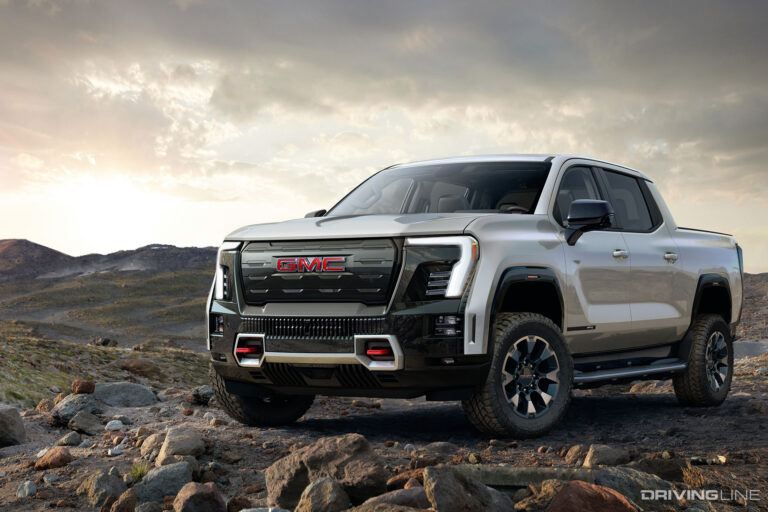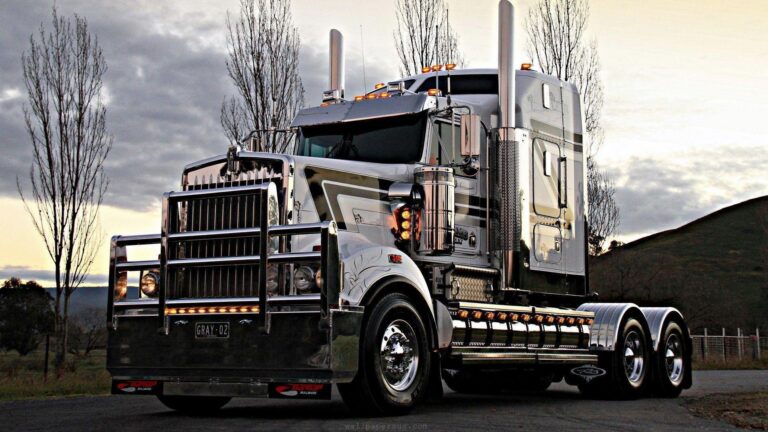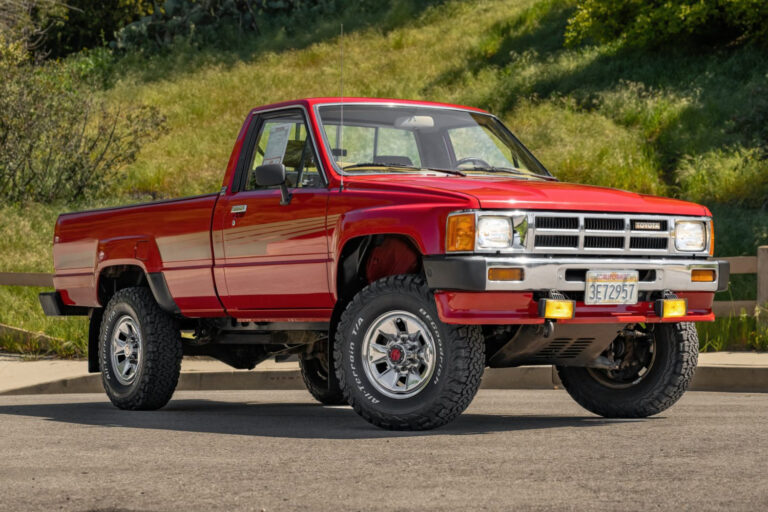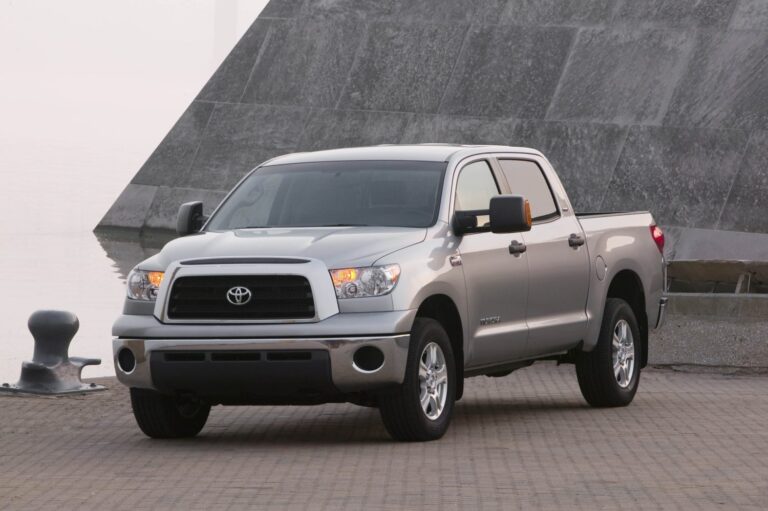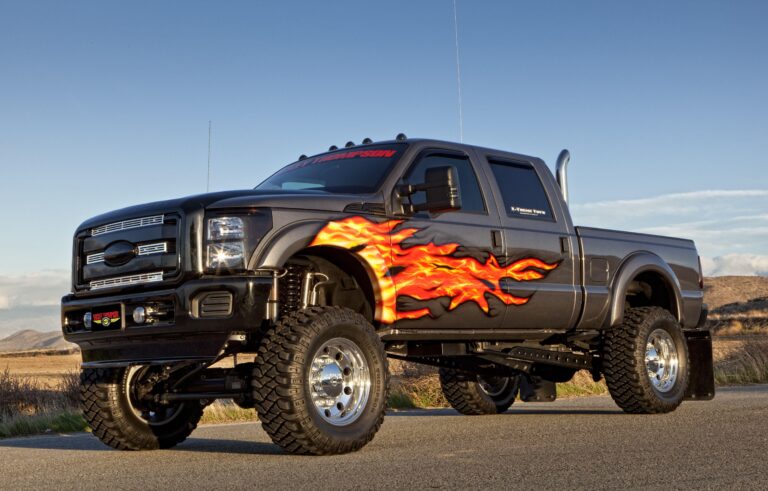U-Haul Trailer Rental Prices: Your Comprehensive Guide to Budgeting Your Next Haul
U-Haul Trailer Rental Prices: Your Comprehensive Guide to Budgeting Your Next Haul cars.truckstrend.com
Embarking on a do-it-yourself move, tackling a significant landscaping project, or simply needing to transport an oversized item can often lead to one immediate thought: U-Haul. As a ubiquitous name in the moving and hauling industry, U-Haul offers a diverse fleet of trailers designed to meet various needs. However, navigating the seemingly straightforward process of renting a trailer can quickly become complex when it comes to understanding U-Haul trailer rental prices. These prices aren’t fixed figures but rather dynamic rates influenced by a multitude of factors.
Understanding the nuances of U-Haul trailer rental costs is paramount for effective budgeting and avoiding unexpected expenses. This comprehensive guide aims to demystify U-Haul’s pricing structure, offer practical advice, and provide the insights you need to secure the right trailer at the right price for your next hauling adventure.
U-Haul Trailer Rental Prices: Your Comprehensive Guide to Budgeting Your Next Haul
Understanding U-Haul’s Dynamic Pricing Model
Unlike a fixed retail price, U-Haul trailer rental costs are influenced by several key variables, making each quote unique. Grasping these factors is the first step toward predicting and managing your expenses.
1. Trailer Type and Size:
U-Haul offers a range of trailers, each designed for specific purposes, and their size and specialized features directly correlate with their price. Generally, larger trailers and those designed for vehicle transport will cost more than smaller utility or cargo trailers.
2. Rental Duration:
For "in-town" rentals (where you pick up and return the trailer to the same location), prices are typically quoted on a daily flat rate. For "one-way" rentals (picking up in one location and dropping off in another), the duration is factored into the overall one-way rate, which is calculated based on distance, demand, and availability.
3. Pick-up and Drop-off Locations (In-Town vs. One-Way):
This is perhaps the most significant differentiator in U-Haul’s pricing.
- In-Town Rentals: These are usually the most economical option. You pick up and return the trailer to the same U-Haul dealer. Prices are a flat daily rate, making them ideal for local moves, errands, or projects.
- One-Way Rentals: These offer convenience for long-distance moves but come with a variable price tag. The cost is determined by the distance between your pick-up and drop-off locations, the demand for trailers on that specific route, and the availability of the desired trailer type at both ends. One-way prices are often significantly higher than daily in-town rates.
![]()
4. Demand and Availability:
Like airline tickets, U-Haul prices can fluctuate based on demand. Peak moving seasons (summer, end of month), weekends, and holidays typically see higher prices due to increased demand and limited availability. Conversely, renting during off-peak times might result in lower rates.
5. Time of Booking:
Booking in advance, especially for one-way rentals during peak season, can sometimes secure a better rate and ensures availability. Last-minute bookings might be more expensive or leave you with limited options.

Types of U-Haul Trailers and Their Estimated Costs
U-Haul categorizes its trailers into three main types: Cargo Trailers, Utility Trailers, and Auto Transports. Each serves a distinct purpose and comes with a corresponding price range. It’s crucial to remember that the prices below are estimated ranges and can vary significantly based on the factors mentioned above.
1. Cargo Trailers (Enclosed)
Ideal for protecting your belongings from weather and theft, cargo trailers are fully enclosed. They are popular for household moves and transporting sensitive items.
- 4×8 Cargo Trailer:
- Common Uses: Dorm room moves, small apartment items, furniture.
- Estimated In-Town Daily Rate: $14.95 – $19.95
- Estimated One-Way Rental Range: $60 – $200+
- 5×8 Cargo Trailer:
- Common Uses: 1-bedroom apartment moves, multiple pieces of furniture.
- Estimated In-Town Daily Rate: $19.95 – $24.95
- Estimated One-Way Rental Range: $80 – $250+
- 5×10 Cargo Trailer:
- Common Uses: Larger apartments, small 1-bedroom homes.
- Estimated In-Town Daily Rate: $24.95 – $29.95
- Estimated One-Way Rental Range: $100 – $300+
- 6×12 Cargo Trailer:
- Common Uses: 1-2 bedroom homes, large appliances, considerable furniture.
- Estimated In-Town Daily Rate: $29.95 – $39.95
- Estimated One-Way Rental Range: $120 – $400+
2. Utility Trailers (Open)
These open-top trailers are perfect for hauling landscaping materials, construction debris, ATVs, motorcycles, or anything that doesn’t need weather protection. Many come with a ramp for easy loading.
- 4×7 Utility Trailer:
- Common Uses: Light hauling, yard waste, small equipment.
- Estimated In-Town Daily Rate: $14.95 – $19.95
- Estimated One-Way Rental Range: $60 – $200+
- 5×8 Utility Trailer:
- Common Uses: Small furniture, lawnmowers, construction materials.
- Estimated In-Town Daily Rate: $19.95 – $24.95
- Estimated One-Way Rental Range: $80 – $250+
- 5×9 Utility Trailer with Ramp:
- Common Uses: Motorcycles, ATVs, appliances, large equipment.
- Estimated In-Town Daily Rate: $24.95 – $29.95
- Estimated One-Way Rental Range: $100 – $300+
- 6×12 Utility Trailer:
- Common Uses: Large landscaping projects, construction debris, multiple items.
- Estimated In-Town Daily Rate: $29.95 – $39.95
- Estimated One-Way Rental Range: $120 – $400+
3. Auto Transports (Car Haulers)
Designed specifically for towing vehicles, these come in two main forms:
- Tow Dolly:
- Common Uses: Towing front-wheel drive vehicles with the front wheels off the ground.
- Estimated In-Town Daily Rate: $34.95 – $49.95
- Estimated One-Way Rental Range: $80 – $250+
- Auto Transport (Full Trailer):
- Common Uses: Towing all types of vehicles (including 4x4s and heavier cars) with all four wheels off the ground, ideal for longer distances.
- Estimated In-Town Daily Rate: $49.95 – $69.95
- Estimated One-Way Rental Range: $150 – $600+
How to Get a U-Haul Trailer Rental Quote
Obtaining an accurate quote is straightforward and can be done in a few ways:
- Online (Recommended): The U-Haul website (uhaul.com) is the most efficient way to get a real-time quote. Simply enter your pick-up and drop-off locations, dates, and the type of trailer you need. The system will provide an immediate estimate.
- By Phone: Call the U-Haul reservation line or a local U-Haul dealer. Be prepared to provide the same information as you would online.
- In-Person: Visit a U-Haul neighborhood dealer. This is useful if you have specific questions about your vehicle’s towing capabilities or need to purchase additional towing accessories.
Information You’ll Need:
- Desired Trailer Type/Size: (e.g., 6×12 enclosed cargo trailer)
- Pick-up Location: City and state (or specific U-Haul dealer)
- Drop-off Location: City and state (if one-way) or same as pick-up (if in-town)
- Pick-up Date and Time
- Drop-off Date and Time
- Your Towing Vehicle Information: Year, make, model (U-Haul will verify its towing capacity and hitch requirements).
Important Considerations Beyond the Base Price
The quoted rental rate is often just one part of the total cost. Factor in these additional considerations:
- Damage Coverage (Insurance): U-Haul offers optional damage waivers like Safemove and Safetrip. While not mandatory, they can provide peace of mind by covering damage to the trailer or your belongings. Costs typically range from $8 to $25+ depending on the trailer and coverage level. It’s wise to check if your personal auto insurance policy extends coverage to rental trailers.
- Towing Vehicle Requirements: Your vehicle must be equipped to tow the trailer safely. This includes having a properly installed hitch (Class I, II, III, or IV), a hitch ball of the correct size, and working wiring for trailer lights. U-Haul offers hitch installation services and sells towing accessories if you need them.
- Towing Accessories: You might need to purchase or rent additional items like a hitch ball, ball mount, wiring harness, or tie-down straps.
- Fuel Costs: While not a U-Haul charge, the weight of the trailer and its contents will impact your towing vehicle’s fuel efficiency. Factor this into your overall budget, especially for longer distances.
- Taxes and Environmental Fees: Local taxes and small environmental or administrative fees may be added to your total.
Tips for Saving Money on U-Haul Trailer Rentals
Smart planning can significantly reduce your U-Haul trailer rental expenses.
- Book in Advance: Especially for one-way rentals during peak seasons (May-September), booking several weeks or even months ahead can secure better rates and ensure availability.
- Be Flexible with Dates: If your schedule allows, consider renting on weekdays or during off-peak months to potentially find lower rates.
- Choose "In-Town" Whenever Possible: If your move or project allows for picking up and returning the trailer to the same location, this will almost always be the most cost-effective option.
- Select the Right Size Trailer: Don’t overpay for unused space. Estimate your cargo volume accurately and choose the smallest trailer that will safely accommodate your items. U-Haul’s website offers helpful sizing guides.
- Check for Promotions: U-Haul occasionally offers discounts or special promotions. Check their website or inquire when getting a quote.
- Return on Time: Avoid late fees by returning the trailer by the agreed-upon time.
- Consider DIY Towing Accessories: If you frequently tow, investing in your own hitch, ball mount, and wiring can be cheaper in the long run than renting or buying them from U-Haul for each rental.
Potential Challenges and Solutions
Even with careful planning, challenges can arise.
- Challenge: Trailer Unavailability: During peak seasons, your desired trailer might not be available at your preferred location or date.
- Solution: Book as early as possible. Be flexible with your pick-up dates, times, or even alternative nearby locations.
- Challenge: Towing Vehicle Incompatibility: Your vehicle might not meet U-Haul’s requirements for towing a specific trailer size.
- Solution: Always verify your vehicle’s towing capacity (check your owner’s manual) and ensure it has the correct hitch and wiring before booking. U-Haul’s website has a helpful "Towing Capacity" checker.
- Challenge: Unexpected Damage: Accidents happen, and without proper coverage, you could be liable for costly repairs.
- Solution: Strongly consider purchasing U-Haul’s damage waiver or verifying if your personal auto insurance covers rental trailers. Conduct a thorough inspection of the trailer with the U-Haul representative before leaving the lot, noting any existing damage.
Comprehensive U-Haul Trailer Rental Price Table (Estimated Ranges)
Please note that these are estimated price ranges and actual costs can vary significantly based on location, availability, demand, duration of rental, and specific dates. Always obtain a real-time quote directly from U-Haul for the most accurate pricing.
| Trailer Type | Size (Approx.) | Typical In-Town Daily Rate (Est.) | Typical One-Way Rental Range (Est.) | Common Uses | Weight Capacity (Approx.) |
|---|---|---|---|---|---|
| Cargo Trailers | |||||
| 4×8 | 4′ x 8′ | $14.95 – $19.95 | $60 – $200+ | Small loads, dorm moves, furniture, boxes | 1,600 lbs |
| 5×8 | 5′ x 8′ | $19.95 – $24.95 | $80 – $250+ | Apartments, small moves, multiple pieces of furniture | 1,800 lbs |
| 5×10 | 5′ x 10′ | $24.95 – $29.95 | $100 – $300+ | Larger apartments, small homes, appliances | 1,860 lbs |
| 6×12 | 6′ x 12′ | $29.95 – $39.95 | $120 – $400+ | 1-2 bedroom homes, large items, considerable furniture | 2,480 lbs |
| Utility Trailers | |||||
| 4×7 | 4′ x 7′ | $14.95 – $19.95 | $60 – $200+ | Light hauling, yard waste, ATV | 1,770 lbs |
| 5×8 | 5′ x 8′ | $19.95 – $24.95 | $80 – $250+ | Small furniture, equipment, landscaping materials | 1,890 lbs |
| 5×9 (Ramp) | 5′ x 9′ | $24.95 – $29.95 | $100 – $300+ | Motorcycles, lawnmowers, appliances, easy loading | 1,650 lbs |
| 6×12 | 6′ x 12′ | $29.95 – $39.95 | $120 – $400+ | Larger equipment, multiple items, construction debris | 2,110 lbs |
| Auto Transports | |||||
| Tow Dolly | N/A | $34.95 – $49.95 | $80 – $250+ | Front-wheel drive vehicles (2 wheels on dolly) | 3,900 lbs (vehicle max) |
| Auto Transport | N/A | $49.95 – $69.95 | $150 – $600+ | All vehicles, longer distances, 4×4 (4 wheels on trailer) | 5,290 lbs (vehicle max) |
Frequently Asked Questions (FAQ)
Q1: How do U-Haul trailer prices work?
A1: Prices are determined by trailer type/size, rental duration, pick-up/drop-off locations (in-town vs. one-way), demand, and availability. In-town rentals are typically a daily flat rate, while one-way rentals are calculated based on distance and route demand.
Q2: Are U-Haul trailer prices fixed, or do they change?
A2: Prices are dynamic and can change based on current demand, availability, time of year, and specific rental details. Always get a real-time quote for the most accurate pricing.
Q3: Do I need insurance for a U-Haul trailer?
A3: While not always mandatory, U-Haul offers optional damage waivers (e.g., Safemove, Safetrip) that cover damage to the trailer or your cargo. It’s highly recommended, as your personal auto insurance may not fully cover rental trailers.
Q4: What’s included in the base rental price?
A4: The base price covers the use of the trailer for the specified duration and distance. It typically does not include damage coverage, towing accessories, or fuel costs for your towing vehicle.
Q5: Can I rent a trailer for just a few hours?
A5: For in-town rentals, the daily flat rate usually applies regardless of how many hours you use it within that day. There isn’t typically an hourly rental option.
Q6: What if I return the trailer late?
A6: Returning a trailer late can incur additional daily rental charges or late fees. It’s crucial to return it by the agreed-upon time to avoid extra costs.
Q7: Do I need a special license to tow a U-Haul trailer?
A7: In most US states and Canadian provinces, a standard driver’s license is sufficient for towing U-Haul trailers, provided your vehicle meets the towing requirements and the combined weight is within legal limits. Always check local regulations.
Q8: How do I know if my vehicle can tow a U-Haul trailer?
A8: Check your vehicle’s owner’s manual for its maximum towing capacity. U-Haul also has an online tool where you can enter your vehicle’s make and model to see what trailers it can safely tow. Ensure your vehicle has the correct hitch and working electrical connections for trailer lights.
Conclusion
Navigating U-Haul trailer rental prices requires a clear understanding of the factors at play. By recognizing the difference between in-town and one-way rates, selecting the appropriate trailer size, considering optional coverages, and planning your rental strategically, you can effectively manage your budget. U-Haul trailers offer an incredibly flexible and often cost-effective solution for a wide range of hauling needs. With this comprehensive guide, you are now better equipped to secure the perfect trailer at a price that fits your financial plan, ensuring a smooth and successful project or move.


